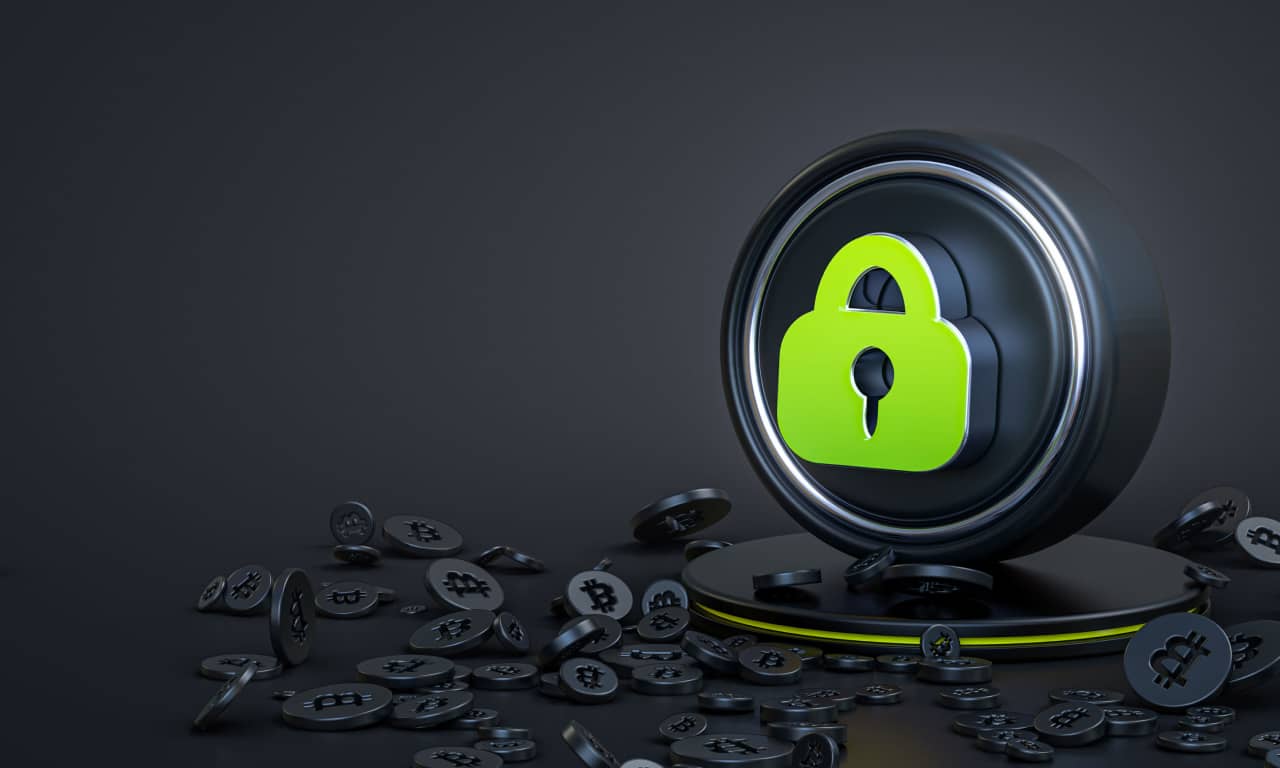Security is one of the most important aspects of crypto trading. However, if you trade crypto on Deriv, you don’t need to worry about it at all because you don’t buy the actual cryptocurrency. You open your trades with fiat money. Whether you trade with CFDs, options or multipliers, you only predict the price movements of an asset and get a chance to earn a payout if your prediction is correct.
Now, if you choose to trade with crypto instead of fiat money, you will actually own a cryptocurrency, and that’s when you need safe storage for it.
When it comes to fiat money, there are two options to keep large amounts of it safe: you either have it in cash or store it in a bank. Cryptocurrency can also be stored in 2 ways: using crypto exchanges and crypto wallets. Both are digital storage, of course, as cryptocurrencies don’t have a physical form.
However, here’s an interesting note – neither crypto exchanges nor crypto wallets actually store cryptocurrency. They only provide secure access to it while the coins are stored on a blockchain. Just like when you use a credit or debit card – it’s not actual fiat money, just a piece of plastic, but it gives you access to the money you stored in a bank.
So, what’s the equivalent of a card when it comes to cryptocurrency and accessing your crypto assets? It’s your public and private keys.
What are private and public keys in the crypto world?
Public and private keys are strings of numbers, letters and other characters (similar to a password) that allow you to perform actions with your cryptocurrencies. A public key is similar to your bank account number – you can share it with other people, who can then transfer cryptocurrency to you. A private key is like your credit card PIN – not to be shared with anyone, as it gives access to your crypto.
The difference in private key management is exactly what differentiates crypto exchanges from crypto wallets.
What is a crypto exchange?
A cryptocurrency exchange is a service that allows you to buy and sell digital coins securely. An example of crypto exchanges on Deriv is fiat onramp services – Changelly, Xanpool, or Banxa. These service providers let you exchange fiat money for cryptocurrency. The purchased crypto is deposited right into your Deriv account and can be used for trading.
Well-known crypto exchanges, especially when they are officially affiliated with an established broker, are one of the safest options to buy, sell, and trade crypto. However, when it comes to storing large amounts, experts advise against keeping your digital coins at crypto exchanges and broker accounts for an extended period of time due to security concerns. Crypto hacks, although rarely successful, usually target exchanges as they are places where a high concentration of cryptocurrency data flows through. If that happens, you have limited control over the safety of your crypto assets and have to rely on the exchange’s service providers entirely to keep them protected.
The main reason for the limited control over your own crypto assets lies in private key access. Most cryptocurrency exchanges do not provide it – the key belongs to an exchange exclusively. This type of storage is called custodial.
If you want to have full control over your crypto assets, a good way of keeping them safe is to transfer any crypto you don’t use for trading to a secure crypto wallet.
What is a crypto wallet?
A cryptocurrency wallet is a software (programme) or hardware (device) that lets you store your digital coins safely.
Software wallets are also called hot wallets and store your private keys in a programme connected to the internet. Just like almost any software nowadays, it can be accessed via a desktop app, mobile app or web browser. One of the most important features to look for when selecting a software wallet is two-factor authentication (2FA), as it strengthens security and provides ease of use.
A lot of hot crypto wallets are non-custodial, which means they give access to the private keys and the responsibility of its safekeeping to the owner. This type of crypto storage is usually considered much safer than custodial crypto exchanges, as long as wallets’ owners take proper care of them and backup their keys. However, it’s important to keep in mind that some hot wallets are custodial too, and do not provide access to a private key.
Hardware wallets, also known as cold wallets, store crypto access offline and are usually no larger than a USB flash drive. This type of wallet is considered a safer option because the device is only connected to the internet when you need to use your crypto, making it much harder to hack. The important security measure, in this case, is just keeping the device safe.
Until very recently, the third type – a paper wallet, used to be considered the most secure way to protect crypto assets. A paper wallet literally means keeping your private key written or printed on a piece of paper. However, since there is a high risk of misplacing or damaging it, this type of wallet is gradually losing its popularity.
Both cold and paper wallet types are completely non-custodial.
Choosing one type of crypto storage over another is purely a matter of personal preference. But do remember that it is crucial to do your research and ensure that the service provider is well-trusted and not fraudulent.
Meanwhile, while reviewing your options, why don’t you create a demo account to practise your trading skills risk-free? Once you feel confident, you can switch to trading with crypto to potentially make more crypto without buying it.
Disclaimer:
This content is not intended to clients residing in the UK.
